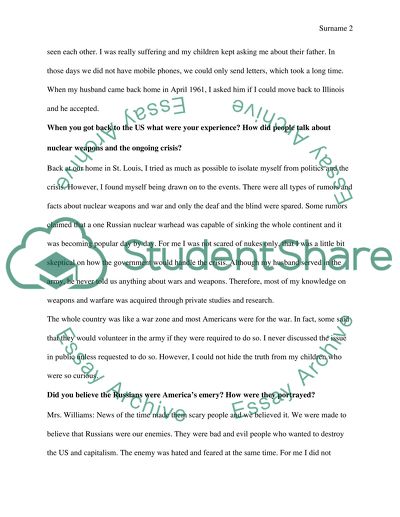Cite this document
(“Cuban Missile Crisis: an Interview Essay Example | Topics and Well Written Essays - 1000 words”, n.d.)
Retrieved from https://studentshare.org/history/1475014-cuban-missile-crisis-an-interview
Retrieved from https://studentshare.org/history/1475014-cuban-missile-crisis-an-interview
(Cuban Missile Crisis: An Interview Essay Example | Topics and Well Written Essays - 1000 Words)
https://studentshare.org/history/1475014-cuban-missile-crisis-an-interview.
https://studentshare.org/history/1475014-cuban-missile-crisis-an-interview.
“Cuban Missile Crisis: An Interview Essay Example | Topics and Well Written Essays - 1000 Words”, n.d. https://studentshare.org/history/1475014-cuban-missile-crisis-an-interview.


